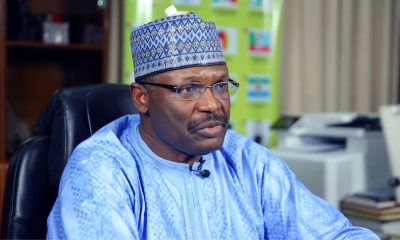Religious freedom, as a fundamental human right, encompasses the liberty to practise, express, and change one’s religion or belief without facing persecution, discrimination, or restriction. This right is recognized in various international human rights instruments. Article 18 of the Universal Declaration of Human Rights (UDHR) provides for the protection of the right to freedom of thought, conscience, and religion. Article 18 of the International Covenant on Civil and Political Rights (ICCPR) further elaborates on this right. From the afore-mentioned, individuals have the right to practise their religion or belief in worship, observance, and teaching. This includes expressing one’s religion or belief through speech, writing, or other means of communication.They also have the right to change their religion or belief if they choose to do so.
While Religious freedom supports personal autonomy and the ability to make choices about one’s beliefs and practices, it also promotes diversity and coexistence among different religious and belief groups in a society. It is a cornerstone of human rights, contributing to the protection of other rights and freedoms. Religious freedom became imperative to save individuals who face persecution or discrimination for their religious beliefs or practices, check governments or communities who impose restrictions on religious expression or practice, citing various reasons like security, public order, or cultural preservation.
On the other hand, community rights refer to the rights of a community to protect their interests, culture, well-being, and other aspects that are significant to the community’s identity and functioning. These rights can encompass various dimensions including cultural preservation, economic interests, and social well-being. Communities often have rights to preserve their cultural heritage, traditions, languages, and practices. This can include protection of cultural sites, practices, and expressions. Communities may also have rights related to the management and benefit from natural resources within their territories or rights to economic development that aligns with their interests. Communities can as well ensure the social well-being of community members, including health, education, and safety. Beyond helping communities preserve their identity and cohesion by protecting aspects that are crucial to their way of life, support their determinations in making decisions about their own affairs, community rights can be particularly important for protecting against external pressures or exploitation.
In some climes, balancing religious freedom with community rights is a delicate task. Religious institutions play vital roles, but their activities can impact neighbors. Finding harmony between these interests is key to peaceful coexistence. Religious freedom is a fundamental right, allowing individuals and groups to practice their faith freely. However, this right isn’t absolute and must be balanced against other community rights and interests. Communities have rights to peace, safety, and quality of life. Noise pollution, crowds, or other impacts from religious activities can affect these rights. Balancing these interests requires consideration and dialogue. Noise from churches, mosques, temples, or other religious institutions can disturb neighbors. Managing noise levels is one way to balance religious expression with community peace. Many places have laws or guidelines governing noise, crowds, or other impacts from religious activities.
Understanding and complying with these frameworks can help balance interests.Dialogue between religious institutions and neighbors can prevent conflicts. By engaging with the community, religious groups can understand concerns and find mutually acceptable solutions. Religious institutions should consider impacts on neighboring properties. This includes noise, traffic, parking, and other factors affecting quality of life. In practice, balancing religious freedom and community rights requires flexibility and understanding from both sides. Religious groups can adopt practices to minimize impacts, while communities can understand the importance of religious expression. Some religious institutions successfully balance their activities with community needs through considerate scheduling, sound management, and community engagement. These examples show that balance is achievable.
Challenges arise when religious groups feel their freedom is restricted or when communities feel impacted by religious activities. Open communication can help address these challenges. Engaging with the community helps religious institutions understand local concerns. This engagement can lead to solutions that respect both religious freedom and community rights. Local authorities can facilitate balance by providing guidelines or mediating discussions between religious groups and neighbors. Their role is crucial in ensuring both sides are heard. Balancing religious freedom and community rights requires respect for diverse perspectives. Communities are made up of various groups with different needs and rights. Religious institutions can mitigate impacts through soundproofing, scheduling adjustments, or other measures. These steps can help minimize conflicts with neighbors.
Religious institutions often contribute positively to communities through charity, education, or social services. Recognizing these benefits can foster understanding.When conflicts arise, addressing them through dialogue is preferable to legal action. Mutual understanding can lead to solutions benefiting both sides.Educating both religious leaders and community members about the need for balance can prevent conflicts. Awareness of mutual rights and interests is key. Flexibility and compromise are essential in balancing religious freedom and community rights. Both sides may need to adjust to find harmony. By balancing religious freedom with community rights, communities can be more harmonious and inclusive. Respect for all interests leads to peaceful coexistence.
Above all, careful consideration of human rights principles, respect for diversity, and mechanisms for dialogue and mediation remain the hallmark of a harmonious community and religious institutions relationship
Revisiting Asuu’s Demand
Bright Amirize
Quote:” It should be remembered that ASUU warned Nigerians long ago about the antics and strategies of neocolonisation, especially what follows after a nation has experienced a civil war.
An understanding or agreement reached between the Federal Government of Nigeria and Academic Staff Union of Universities (ASUU) in 2009, which had not been fully implemented, accounts for current threats by the lecturers to go on strike . One of the vital issues of vexation is the proliferation of universities in Nigeria, both public and private ones, whose qualities are not quite of global standards. It is obvious to those who care to know the details and implications, that there is a proliferation of universities in Nigeria, whose results can hardly produce salutary outcomes in the future. What we find is that Nigerians who had made enormous wealth usually invest in 5- star hotel business, private universities, a airlines, or in oil and gas related plants outside Nigeria. Conditions for the establishment of a private university are quite capital intensive, yet applications are many for going into such a venture.
The demand for university education is quite high among Nigerians, thus making the proliferation of such institutions inevitable. Even with such high growth rate of universities, Nigerians scramble to go to foreign universities to study, in spite of the high cost involved in such ventures. Foreign universities also embark on scrambles to get Nigerians to seek for admissions in their institutions, despite opposition to influx of foreigner in European countries. During the tenure of Margaret Thatcher as British Prime Minister, there were Policies and moves to merge or reduce the number of tertiary institutions, because of the high costs of running and maintaining them. It is natural that when an economy is robust and friendly, states and private entrepreneurs engage in the expansion of universities, as a means of expanding the economic boom is often followed by a recession which can arise from squandering of riches and resources. Moreover, nothing is stable in human affairs.
Therefore, the process of rise and fall of nations, organization and individuals, is common as vital aspects persons are allowed to mess up the economy rather than restore it to a robust shape again. Sadof human experiences. What can be sad is a situation where quacks, impostors and incompetent ly what some nations do during economic downturn is to exploit other naïve and unsuspecting nations, using corrupt individuals to allow foreign interpreneurs to undermine national interests. It should be remembered that ASUU warned Nigerians long ago about the antics and strategies of neocolonisation, especially what follows after a nation has experienced a civil war. Neither can it be denied that oil and gas resources in Nigeria were key factors in the turn of events in Nigeria since 1970. ASUU’s postures on national issues did not go down well with military regimes between 1970 and 1999. Yet ASUU spoke up!
To describe Nigeria as a fantastically corrupt nation would not tell the whole story of what undermined Nigeria’s economy. Rather, foreign interests exploited loop-hopes and weaknesses in Nigeria’s institutions to undermine the nation’s economy. For example, countries that manufacture exotic cars, which their citizens rarely use, look for foreign buyers, especially countries that invest in flamboyant and profligate lifestyles. Who would not want to import 100 exotic cars and have 10 free, even with double the price of each car? Nigerians, especially private entrepreneurs and state officials, are known to be smart procurers and rent seekers. Even in the procurement of students for foreign universities, Nigerians are making fast business. Foreign universities student population is made up largely by students from developing countries, to the extent that fear of an influx of migrants is creating unrest in many European countries. Foreign students stay put rather than return to their countries after their studies. Rather they seek to bring in their spouses or relations.
While we are busy establishing more universities, both public and private ones, developed countries are embarking on practical, direct-experience and on-the-job training strategies. Thus universities rarely have local students, but lure students from developing countries. With so much emphasis on book-oriented learning, and non-availability of jobs after graduation, university education becomes more of cosmetic adornment, where certificate talks. Patriotic Nigerians, who would not shy away from the truth, recognize that our plight includes frivolous hankering for tinsel rather than real gold. Rather than embrace merit and standards of lasting values, we are satisfied with flamboyant braggarts who have money to throw about, even if it requires mortgaging our conscience. Even in the university environment where ideal man-power building should be a priority, what we find is a shameless and mad rush for things that glitter, so long as they give some temporary palliative..
It is quite sad that the stock or tribe of patriotic lecturers in the university system is diminishing fast. If that sector of a nation’s institutions is allowed to mortgage the original “Ivory-Tower ethics” then a nation’s destiny would be in jeopardy. Noble minds are still everywhere in this country but we don’t look for, recognize or encourage them. Even when they are mobilized for service, some tend to join the band-wagon. Proliferation of universities should stop and effort be made to foster practical skill acquisition and investment in research and development, so that what we buy abroad can be produced locally. Why must we spend billions of naira to import electric meters and transformers when professionals in that field can be given the task and challenge of developing such products? Nation building is more of character building, made possible by exemplary and inspiring leadership. The culture of 25% budget padding must stop!
By: Sylvia ThankGod-Amadi




 Politics1 day ago
Politics1 day ago
